Dusseldorf 392, 25 Years at Summerlee
By Paul Geissler
With Screenshots from Paul’s Video of the Trip
First Published in Trolley, Winter 2020
Updated Nov 2024 by Alexander Craig
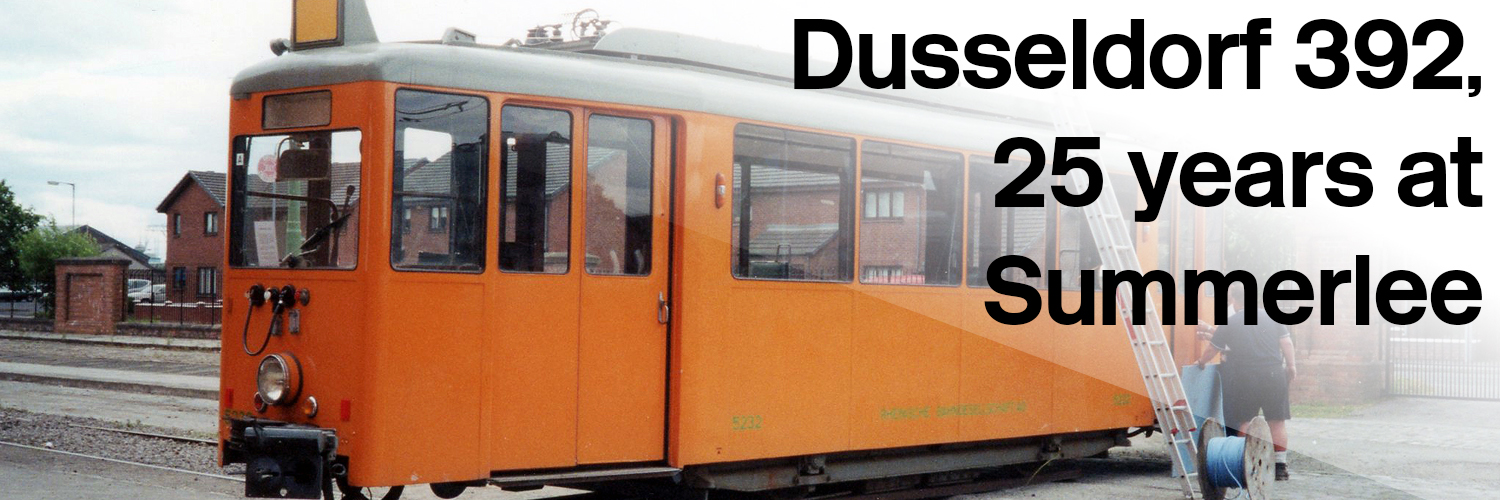
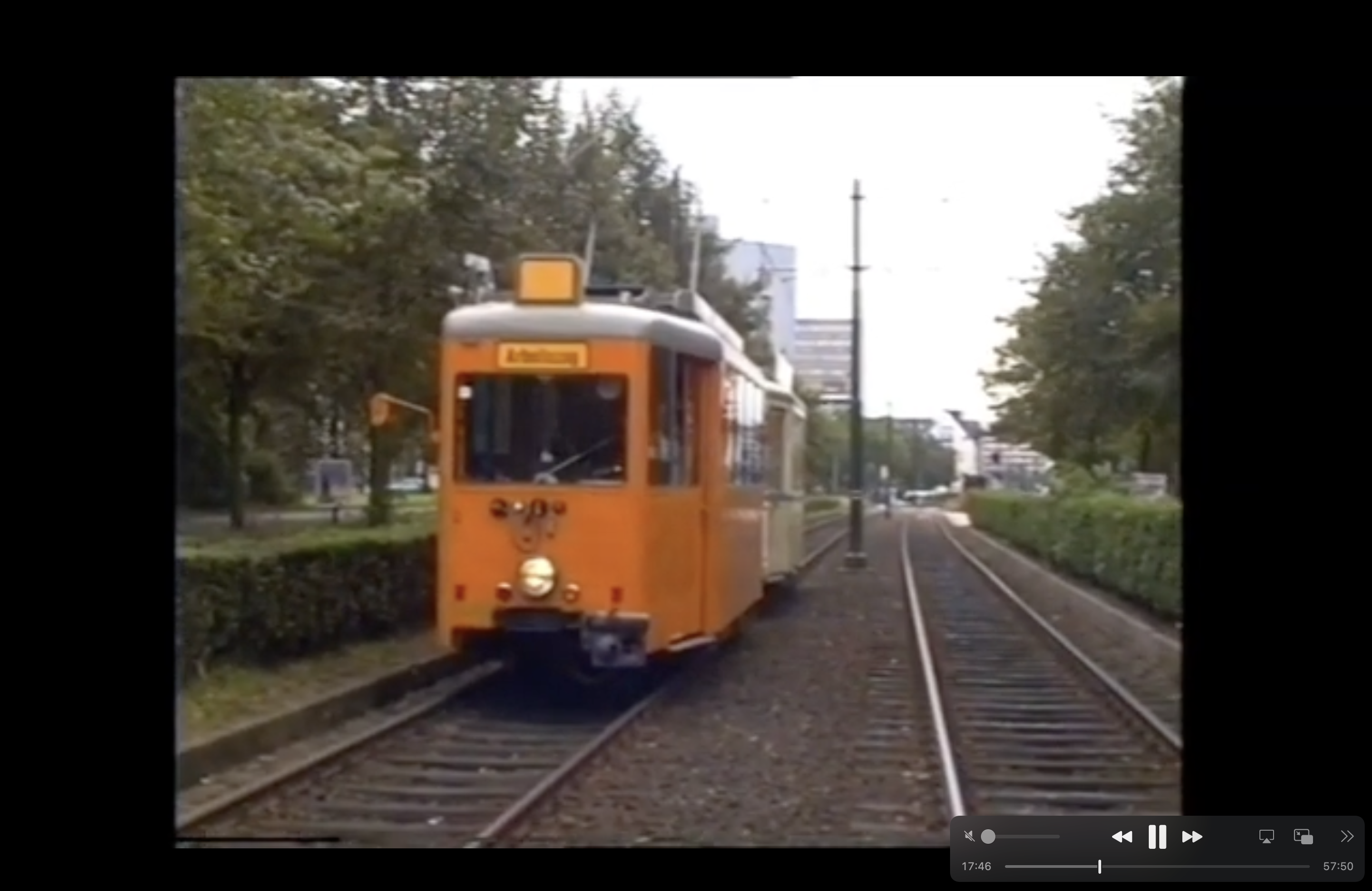 In 1999 news was received that a works car was being disposed of by the Düsseldorf Transport Undertaking (the Rheinische Bahngesellschaft AG, usually shortened to Rheinbahn) which operates the regional U-bahn, trams and buses with services also connecting to the neighbouring cities of Duisburg, Krefeld and Neuss. The interconnections of the transport undertakings in this part of Germany are very complex and are organised as a regional transport authority covering the whole of the Rhein Ruhr area.
In 1999 news was received that a works car was being disposed of by the Düsseldorf Transport Undertaking (the Rheinische Bahngesellschaft AG, usually shortened to Rheinbahn) which operates the regional U-bahn, trams and buses with services also connecting to the neighbouring cities of Duisburg, Krefeld and Neuss. The interconnections of the transport undertakings in this part of Germany are very complex and are organised as a regional transport authority covering the whole of the Rhein Ruhr area.
The tramways of Düsseldorf started as two separate undertakings, the Düsseldorf City Tramways (which were established as a horse tramway in 1877 and electrified in 1896) and the Rheinbahn was established in 1898 to connect Düsseldorf with the city of Krefeld (electrified from the start it was the first European electric interurban tramway). Highly successful both commercially and financially, the Rheinbahn took over the City Tramways in 1920. Following the Second World War several of the city lines were rebuilt as U-bahn lines and the trams were modernised.
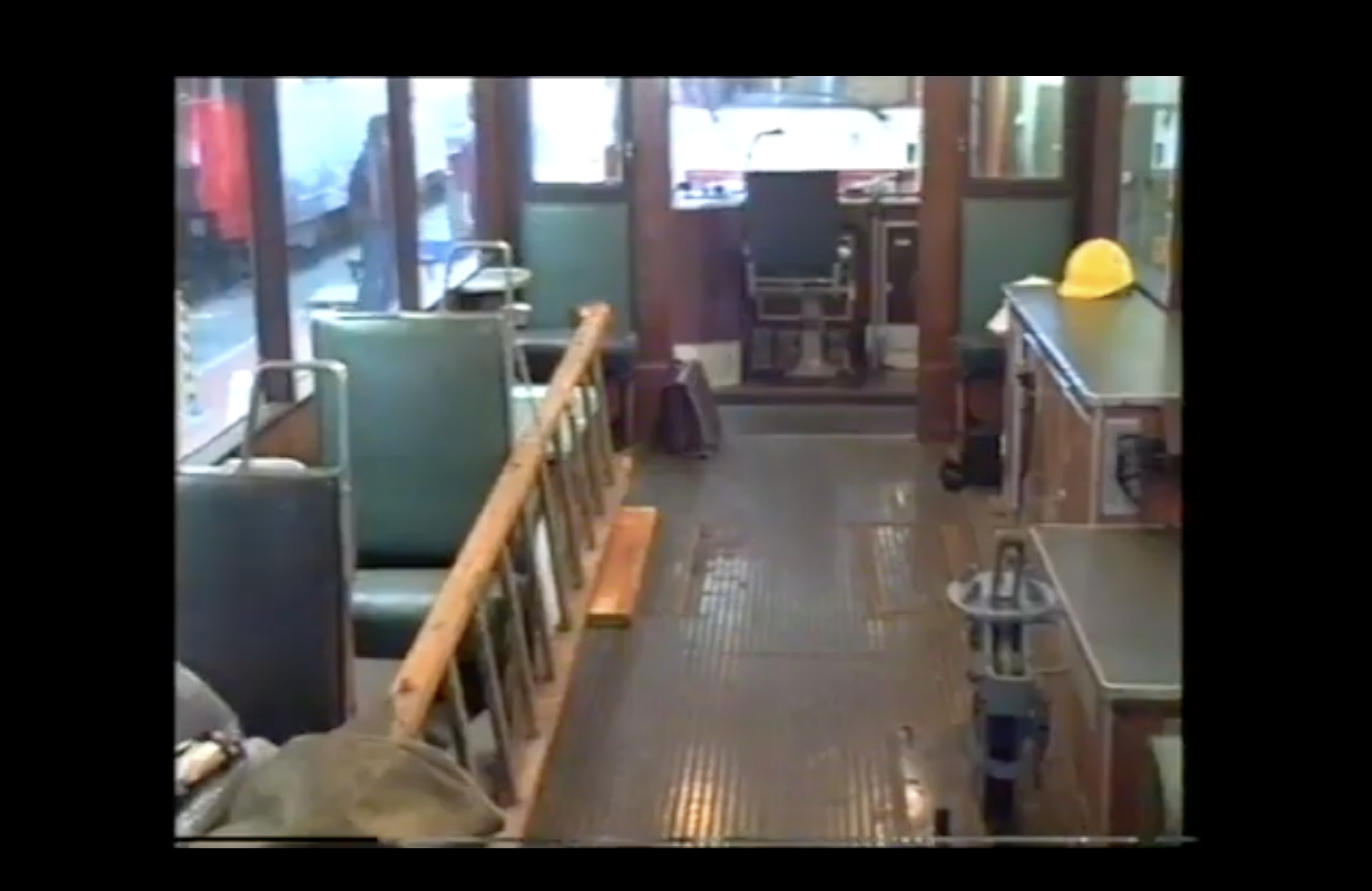 The 1999 delivery of a fleet of low floor cars resulted in the disposal of some older cars, including 5232. Built in 1951 by Düwag as a bi-directional 2 axle motor tram numbered 392, it was fitted with 2x75 KW motors for service on the long interurban routes to Krefeld and Duisburg, towing two trailers. In 1972 the car entered the engineering fleet and renumbered 5232. During it’s life it had been meticulously maintained and was in excellent condition. It was only lack of space that forced its withdrawal.
The 1999 delivery of a fleet of low floor cars resulted in the disposal of some older cars, including 5232. Built in 1951 by Düwag as a bi-directional 2 axle motor tram numbered 392, it was fitted with 2x75 KW motors for service on the long interurban routes to Krefeld and Duisburg, towing two trailers. In 1972 the car entered the engineering fleet and renumbered 5232. During it’s life it had been meticulously maintained and was in excellent condition. It was only lack of space that forced its withdrawal.
As the car could be fitted with a chair lift, it was decided that Mike Chalton, the Summerlee tram technician at that time, and myself go to inspect the car and, if satisfactory, negotiations for its purchase could commence.
30 September saw us arrive in Düsseldorf and we were taken to the Central Workshop at Heerde. This was a very large complex with running roads, maintenance and overhaul sheds, all excellently equipped with plenty of working space. Round the depot there was a test track.
.
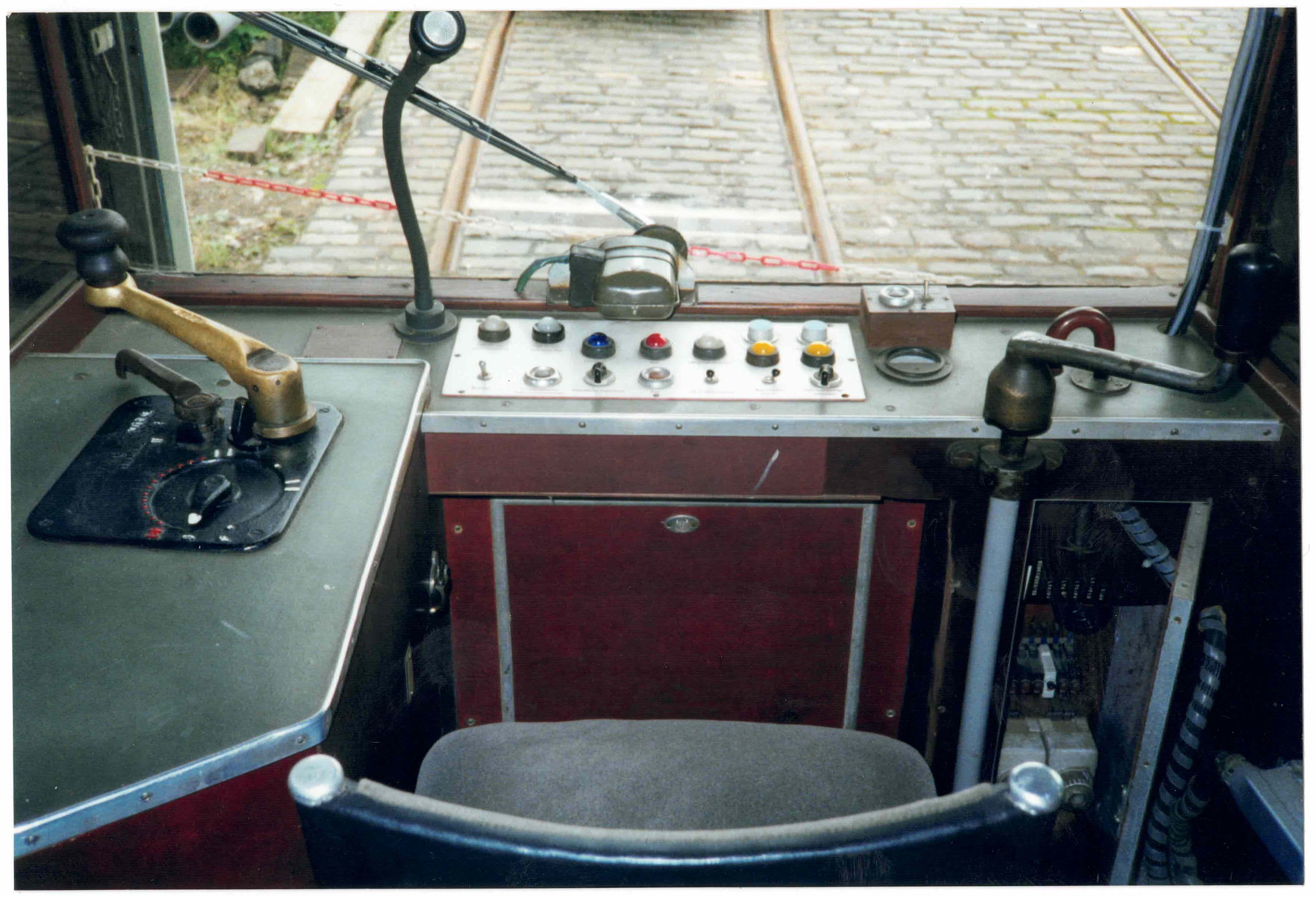 As 5232 had been withdrawn we had expected it to be parked in the back of a shed, but no. It was in a heated running shed looking immaculate in its orange works livery with the destination screens showing Arbeitszug (Works car). The seating had originally been 2+1 but the double seats had been removed and cupboards constructed with a rotary converter and ancillary gear mounted on the floor, and was fitted overhead blower heaters. The car was in superb condition.
As 5232 had been withdrawn we had expected it to be parked in the back of a shed, but no. It was in a heated running shed looking immaculate in its orange works livery with the destination screens showing Arbeitszug (Works car). The seating had originally been 2+1 but the double seats had been removed and cupboards constructed with a rotary converter and ancillary gear mounted on the floor, and was fitted overhead blower heaters. The car was in superb condition.
A demonstration of the car’s capability was demonstrated when 5232 crossed the city to Handweiser depot to deliver a trailer, running via Neuss on street and reserved track impressively making full use of the parallel power notches. The depot is larger than Heerde, with 50 roads and incorporates a driver training track, about 1.5Km long.
It was to Handweiser we came the following day and were introduced to one of the driving instructors, Günther Wenda. He showed us one of the new low floor cars with its joy stick control and demonstrated the driving technique. Then he said “OK, it’s your turn”. Well, who can say no to such an invitation; many times round the track we went slow speed, full speed and full braking, and procedures for service stops, all mindful of careful driving.
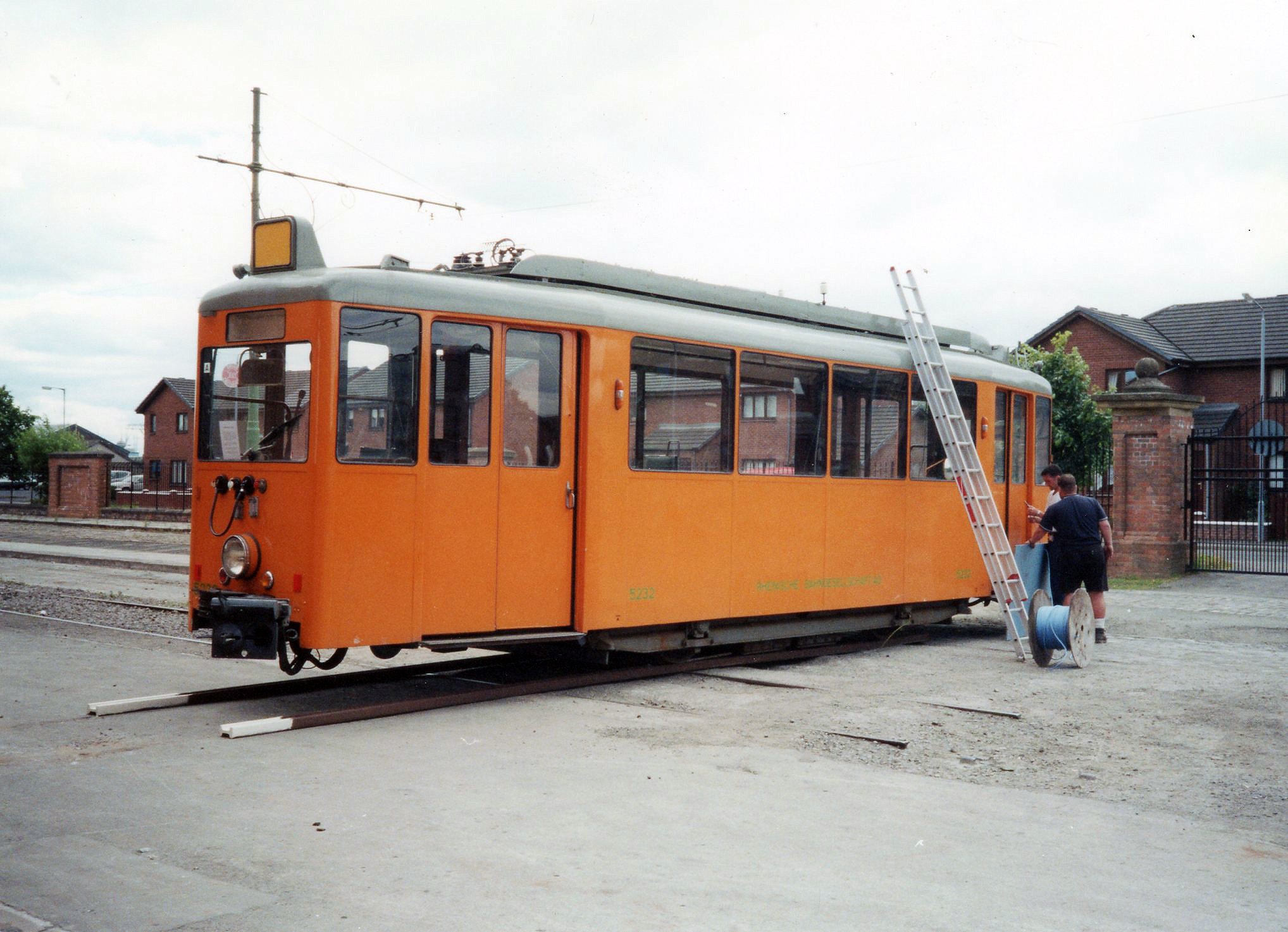 The next car for us to “play with” was Grossraum car 5101, a fully electric car converted for driver training purposes with dual control. Here, he made us work for our living, including hard driving, service stops, emergency stops and introducing various faults which had to be investigated and solved e.g., brake failure, motor failure. Why would the car not go? Check the pantograph contact with the overhead, check the doors, check the motors, etc – a full schedule of instruction and testing.
The next car for us to “play with” was Grossraum car 5101, a fully electric car converted for driver training purposes with dual control. Here, he made us work for our living, including hard driving, service stops, emergency stops and introducing various faults which had to be investigated and solved e.g., brake failure, motor failure. Why would the car not go? Check the pantograph contact with the overhead, check the doors, check the motors, etc – a full schedule of instruction and testing.
At the end of the full days training we were delighted by our instructor’s approval of our skills.
A wonderful experience and thanks to Rheinbahn for declaring 392 superfluous to requirements.